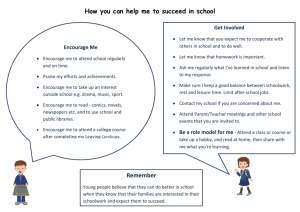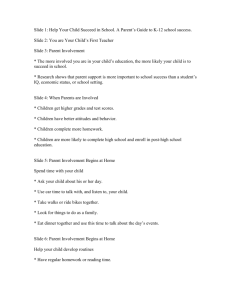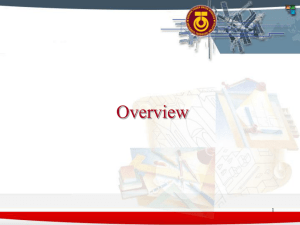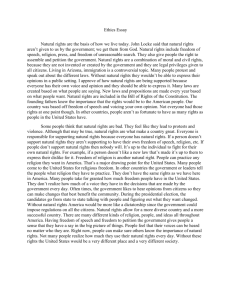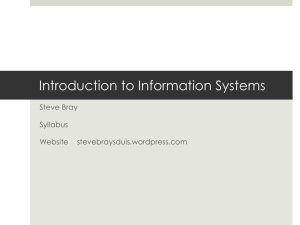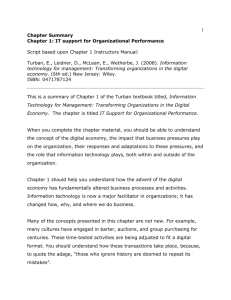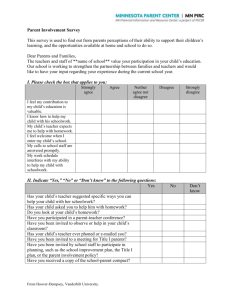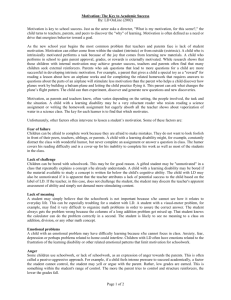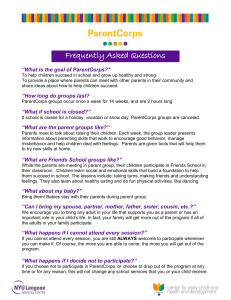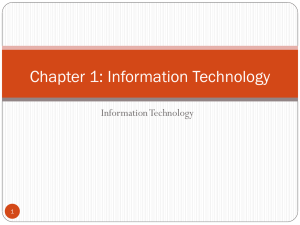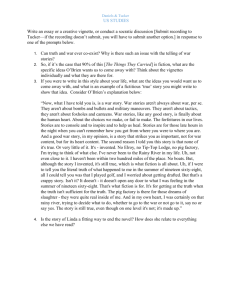Inadequate Academic Preparation
advertisement
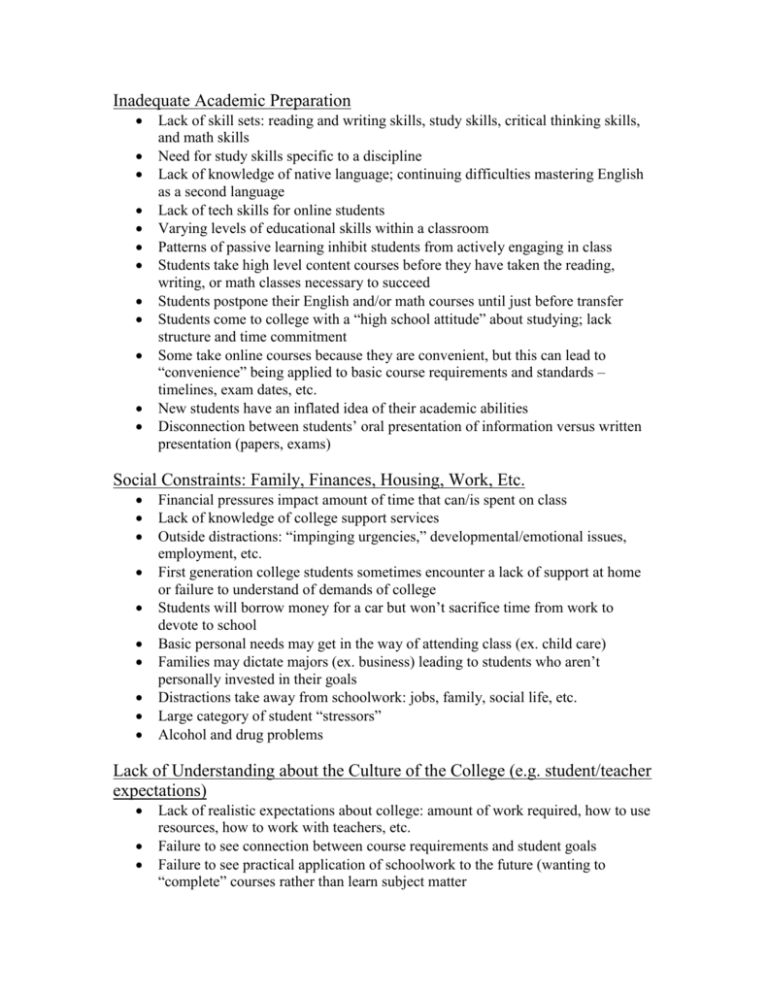
Inadequate Academic Preparation Lack of skill sets: reading and writing skills, study skills, critical thinking skills, and math skills Need for study skills specific to a discipline Lack of knowledge of native language; continuing difficulties mastering English as a second language Lack of tech skills for online students Varying levels of educational skills within a classroom Patterns of passive learning inhibit students from actively engaging in class Students take high level content courses before they have taken the reading, writing, or math classes necessary to succeed Students postpone their English and/or math courses until just before transfer Students come to college with a “high school attitude” about studying; lack structure and time commitment Some take online courses because they are convenient, but this can lead to “convenience” being applied to basic course requirements and standards – timelines, exam dates, etc. New students have an inflated idea of their academic abilities Disconnection between students’ oral presentation of information versus written presentation (papers, exams) Social Constraints: Family, Finances, Housing, Work, Etc. Financial pressures impact amount of time that can/is spent on class Lack of knowledge of college support services Outside distractions: “impinging urgencies,” developmental/emotional issues, employment, etc. First generation college students sometimes encounter a lack of support at home or failure to understand of demands of college Students will borrow money for a car but won’t sacrifice time from work to devote to school Basic personal needs may get in the way of attending class (ex. child care) Families may dictate majors (ex. business) leading to students who aren’t personally invested in their goals Distractions take away from schoolwork: jobs, family, social life, etc. Large category of student “stressors” Alcohol and drug problems Lack of Understanding about the Culture of the College (e.g. student/teacher expectations) Lack of realistic expectations about college: amount of work required, how to use resources, how to work with teachers, etc. Failure to see connection between course requirements and student goals Failure to see practical application of schoolwork to the future (wanting to “complete” courses rather than learn subject matter Desire to receive information rather than receive an education Sense of entitlement; idea that showing up is sufficient (high school view) Sporadic or inappropriate utilization of college services Students take too many classes; this leads to time management problems, stress, and poor performance in all classes Inability to see how past choices have affected present circumstances Students don’t know how to learn, how to negotiate the educational system Disconnect between what early failure in college does to affect student’s future Lack of recognition of what is gained by becoming a life-long learner Students see grades as “given” rather than “earned.” Lack of Motivation Students need incentives to do what is good for them Lack of motivation or lack of insight into own motivation Lack of self-direction Students have perception that they can’t learn, that a class is too difficult for them Unclear Sense of the College Community and Identity within It Mental health issues: campus not always welcoming; large numbers of isolated students; the kind of unity that comes from international student community not available to students from out of town Night students have difficulty accessing all campus resources Institutional Constraints Time pressures of the classroom: urgency to complete work in a given time rather than achieve a level of quality in work Pressures to choose a major, enter career path as soon as possible Students don’t take necessary courses if they aren’t transferable (Ex. Eng. 103) Lack of enforcement of skills advisories; students take courses without necessary reading, writing and critical thinking skills to succeed Learning styles aren’t always accommodated Classrooms have motivated and unmotivated students, skilled and unskilled students Students feel standards are negotiable for different classes (ex. apply different standards for writing assignments in non-English classes); expectations are different among courses, even similar courses (lack of a “united front”) Grades feed the syndrome of “What is the least I can do to get the reward?” Models of instruction can increase student stress Conflicts arise when instructors try to maintain realistic/high standards and respond to pressure to raise success rates Students may be focused on attaining personal goals rather than achieving College’s definition of academic success
